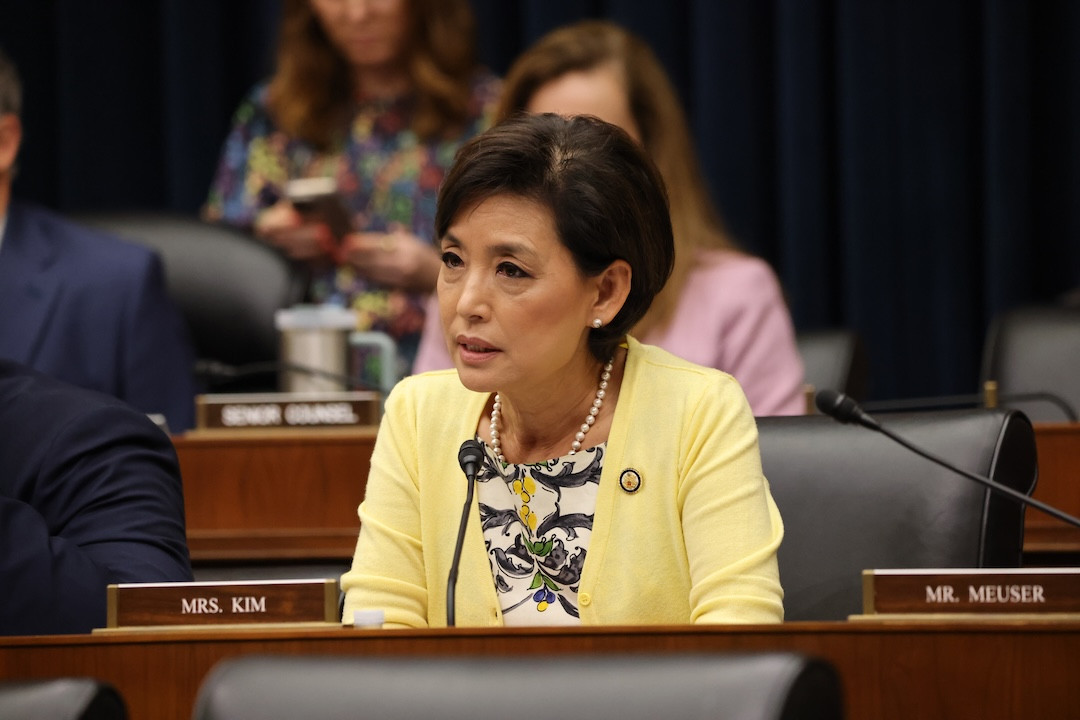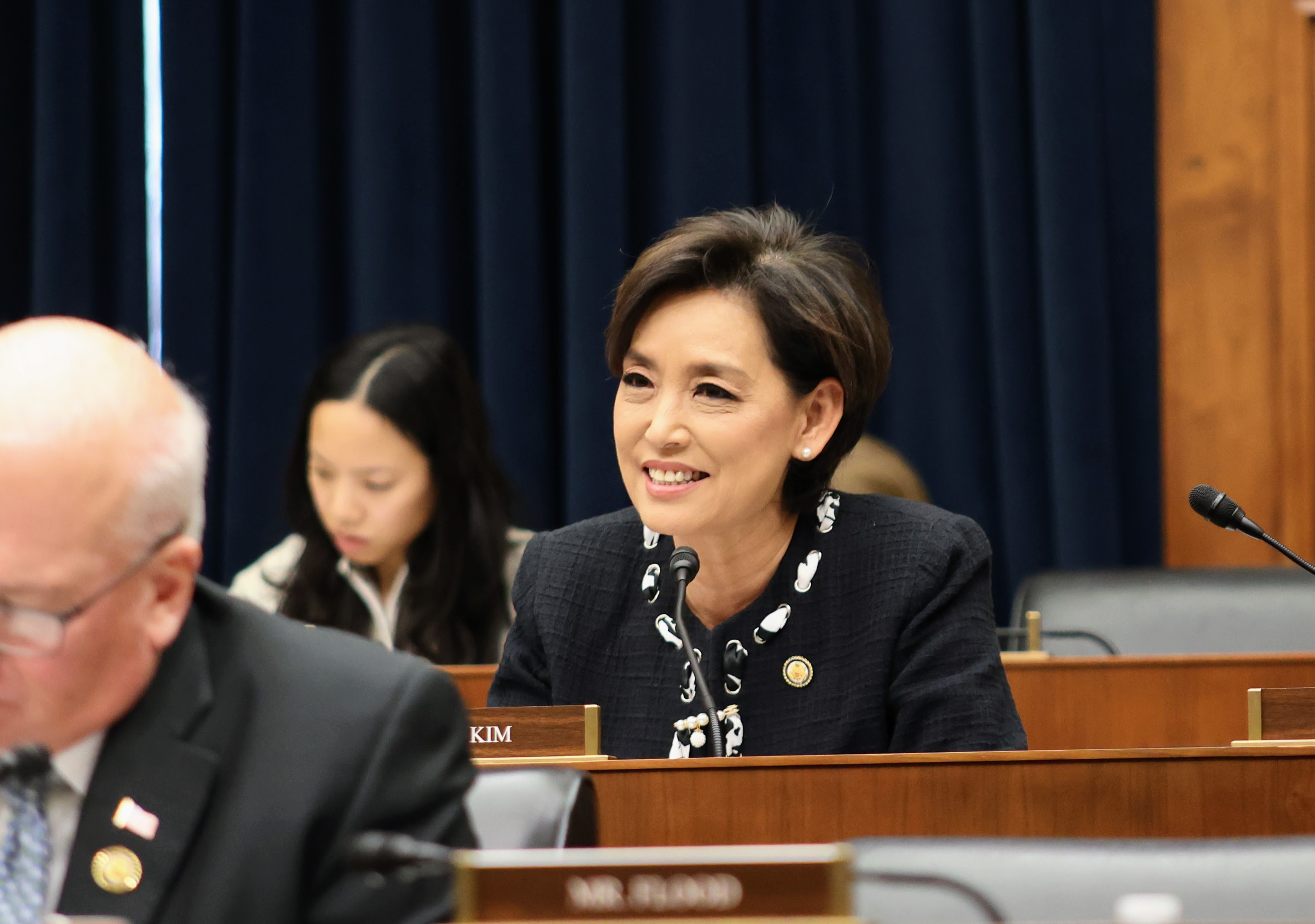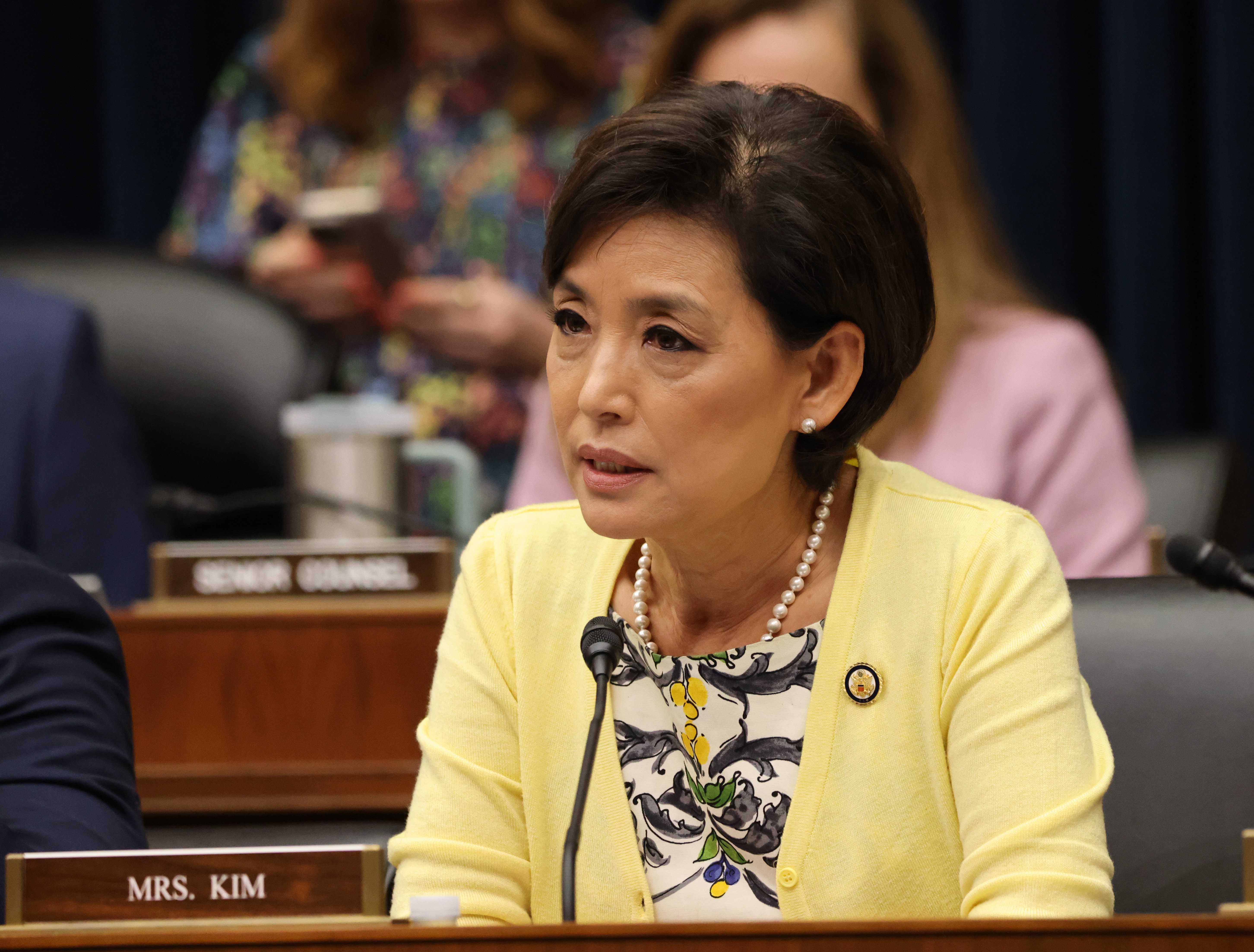Washington, DC – This week, U.S. Representative Young Kim (CA-40) asked questions to Treasury Secretary Scott Bessent at a House Financial Services Committee hearing.
Watch the full clip HERE or read highlights below.
On tariffs
Rep. Kim: Southern California, where I’m from in and the district that I represent, serves as the primary gateway to Pacific Rim, and Asian goods into the United States come through the Ports of LA and Long Beach. We are already starting to see a drop in volume as the Ports of LA and Long Beach are expected to see 35% to 30% drop when compared to a year ago. Cargo volume is one of the largest economic drivers in the region, and a long-term drop will not just impact families at the grocery stores and small businesses’ bottom line but also result in truckers and dock workers losing their jobs. So, Secretary Bessent, I would like to ask, how can you ensure that our tariff policy will not unintentionally harm American small businesses and workers in the long term?
Secretary Bessent: Congresswoman, we believe they are, over the long term that it will drive growth in the economy. And as I’ve said many times, it is a mistake to look at trade in isolation. The Trump economic policy is a three-legged stool. Trade, taxes, and deregulation, and we believe that the sum of the parts, that the whole is greater than the parts. As we complete each one of those that the US will serve the substantial economic growth.
Rep. Kim: I know that a lot of my constituents, share these concerns that we raised. I’d like to continue this discussion on this specific topic with you moving forward, because I’m concerned that these long scale tariffs, if they continue in the long term, then American working families and small businesses will suffer under price hikes and a lack of certainty.
On the Financial Stability Oversight Council (FSOC)
Rep. Kim: Under the previous administration, Secretary Yellen rescinded the non-bank systematically important financial institution and replaced it with a new framework for assessing the financial risk. This new framework overlooks the importance of prioritizing an activity based standard and a cost benefit analysis. So, Secretary Bessent, does FSOC intend to reassess the 2023 guidance so that it is more closely aligned with the thoughtful process that was created in 2019?
Secretary Bessent: Congresswoman, that is on our agenda.
Rep. Kim: Thank you. You know, as you finalize that decision, I want to emphasize that my support for a return to an activity based approach that more appropriately addresses the risk of non-banks.
Secretary Bessent: Treasury would be happy to work with your team on that.
On CDFI Fund
Rep. Kim: I’d like to urge you to continue your support for CDFI. CDFI Fund programs are statutory, as you know, and this has been critical in promoting the local economy in Orange County. Do you still agree that the CDFI plan has a critical role to play in fostering economic opportunity? I think I know the answer because you stated very clearly, in public statements.
Secretary Bessent: We believe that if CDFI officials follow their statutory obligations and do not digress into more ideological boundaries, they can be important institutions.
On Financial Literacy
Rep. Kim: As you know, last week I attended the Financial Literacy Roundtable that your team put together. I want to thank you so much because, as a co-chair of the Financial Literacy and Wealth Creation Caucus, events like that, bringing the stakeholders together and having a meaningful dialogue and conversation, I think is critically important. We need to continue that. Can you talk about how you can continue to advance financial literacy initiatives now that we are past the Financial Literacy Month?
Secretary Bessent: As you should know, it is a strong core belief of mine that financial literacy is the only path to economic independence and well-being. The more Americans that who can be educated, and I think we should probably go state to state and encourage each state to put in financial literacy standards for their students.




